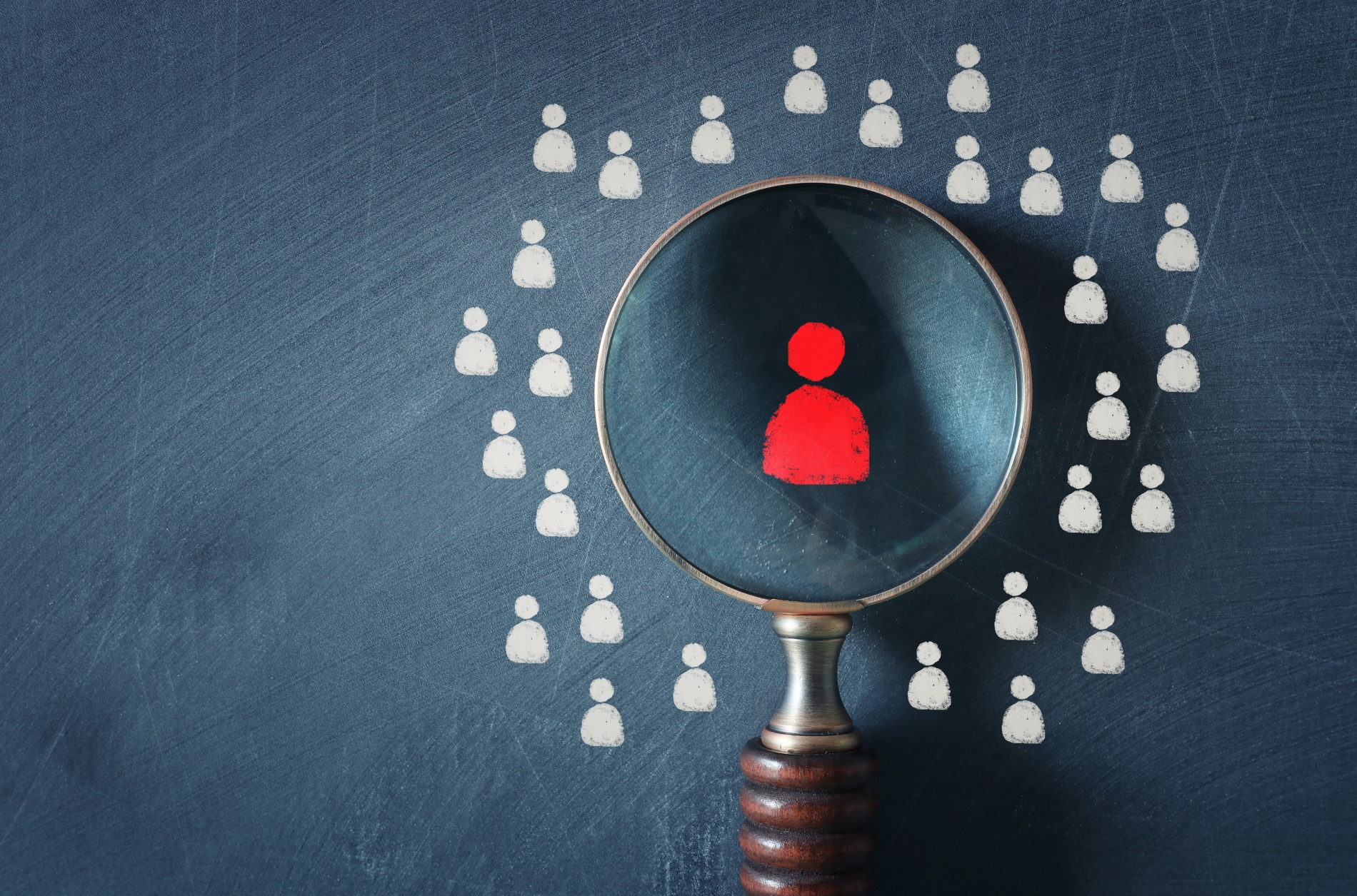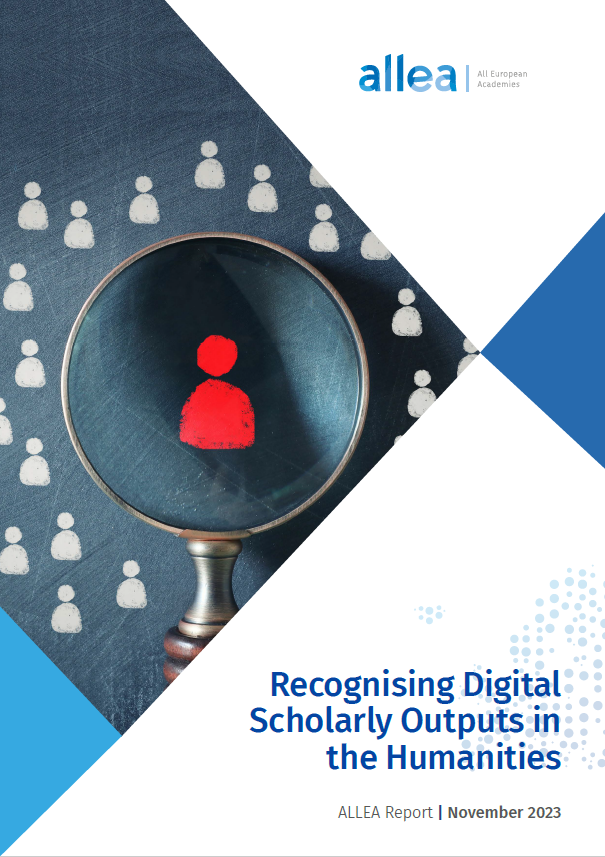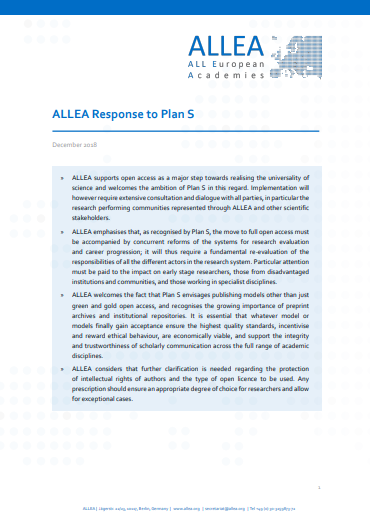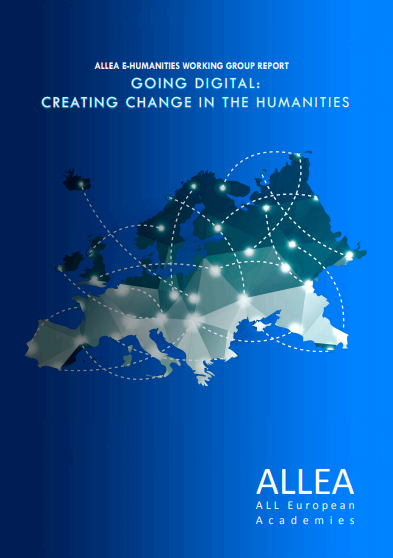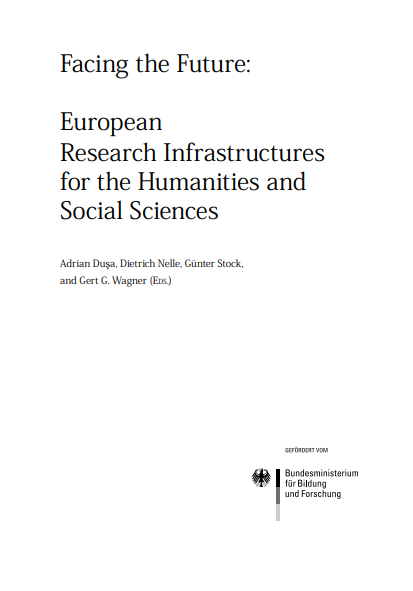E-Humanities
Humanities data can be rich and complex, non-standardised in format, without common or consistent metadata and ontologies, and can be subject to complex rights issues. Consensus and best practice regarding digitisation and metadata standards for common usage, that still retain the richness of different disciplines and data types, could enable open access to Humanities data, and facilitate data exchange and sharing between the wealth of archives, repositories and libraries across Europe.
The European Academies constitute a unique pan-European knowledge base that is trusted, non-partisan and long-term. The Academies therefore have an important contribution to make to debates regarding sustained digital infrastructures and project-funded artefacts, the achievement of long-term durable digital preservation, the societal responsibility for preservation of our digital cultural heritage, and research practices in the field of digital Humanities.
ALLEA Working Group E-Humanities
The Working Group E-Humanities identifies and raises awareness for priorities and concerns of the digital humanities, contributes to the Open Science and Open Access agenda from a humanities and social sciences perspective, and builds consensus on common standards and best practices in e-humanities scholarship and digitisation.
The group’s latest report, ‘Recognising Digital Scholarly Outputs in the Humanities‘ (2023), emphasizes the transformative impact of digital practices on humanities scholarship, offering a practical guide for navigating the evolving scholarly landscape. Their previous report ‘Sustainable and FAIR Data Sharing in the Humanities‘ (2020), provided suggestions on aligning digital data with FAIR principles, while their inaugural publication, ‘Going Digital: Creating Change in the Humanities’ (2015), made recommendations around archival sustainability and data training required for achieving Open Access and Open Data goals across the Humanities.
Going forward, the E-Humanities Working Group is focusing on the European Open Science and Open Research agendas, identifying growth opportunities for humanities’ scholarships, as well as the contributions Humanities methodologies can make to truly open research.
Members of the Working Group
- Dr Maciej Maryl (Chair), Institute of Literary Research of the Polish Academy of Sciences
- Marta Błaszczyńska (Secretariat), Institute of Literary Research of the Polish Academy of Sciences
- Dr Ilaria Bonincontro, The National Academy of the Lincei
- Dr Beat Immenhauser, Swiss Academies of Arts and Sciences
- Professor Alexandra Lenz, Austrian Academy of Sciences
- Dr Szilvia Maróthy, Hungarian Academy of Sciences
- Professor Jeffrey T. Schnapp, Harvard University
- Dr Ulrike Wuttke, University of Applied Sciences Potsdam
- Drs. Joris J. van Zundert, Royal Netherlands Academy of Arts and Sciences
Report: ’Recognising Digital Scholarly Outputs in the Humanities’
The report ‘Recognising Digital Scholarly Outputs in the Humanities‘ explores the evolving landscape of digital humanities scholarship. It advocates for adapting assessment systems to accommodate interdisciplinary work, innovative research methodologies, and non-traditional scholarly outputs. Emphasizing the importance of aligning studies with FAIR research data, the report provides practical recommendations for evaluating various digital scholarly outputs, including case studies with examples and suggested reading materials.



